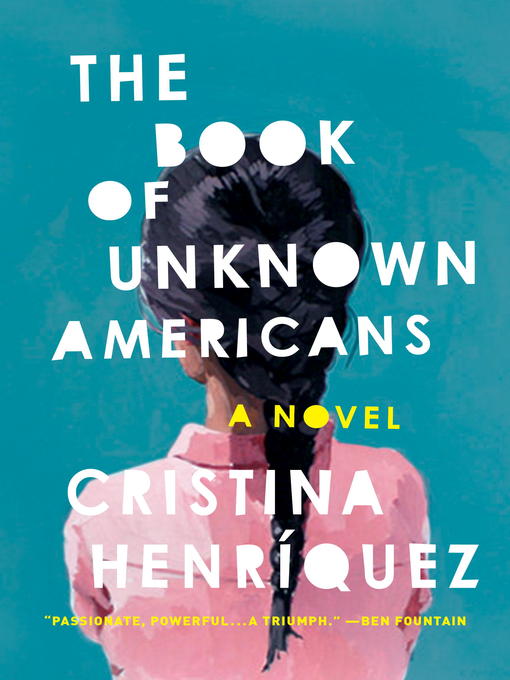One word captures what motivates immigrants to venture to a new country: Better.
Indeed, “better” is the catch-all for the immigrant families at the center of Cristina Henriquez’ second novel, The Book of Unknown Americans. Gathered from various corners of Central America — Panama, Mexico, Guatemala, Nicaragua, Paraguay – her characters all make their home in a small, dank apartment building in a sleepy Delaware town.
In an interview with Bustle.com, the Chicago-based Henriquez said that she wasn’t writing a political statement, but hoping to fictionalize the contemporary immigration debate. “The highest praise I’ve gotten so far is that somebody living in Delaware told me, after they read my book, they were driving down Kirkwood, which is where the families all live,” she recalls. “She was looking at the families waiting at the bus stop, and she saw them differently. That’s my job. That’s my goal.”
The novel opens with the arrival of the Riveras, a family fresh off a 30-plus hour trip in the back of a pickup truck with a driver who chain smoked cigarettes in lieu of conversation. They arrive in the middle of the night, with little to their name beyond a mattress they found on the side of the road, dishes, and garbage bags full of clothes and towels.
Arturo and Alma come to the U.S. for “better” for their daughter Maribel, a teenager who sustained a traumatic brain injury and needed more specialized schooling than they could secure in Mexico. The couple finds a reputable school in Delaware and depart.
One by one, they meet the other tenants, who show them where to buy food, clean their laundry, and take English classes. Maribel instantly finds a friend in Mayor Toro, whose parents quickly bond with the Riveras. A brief love affair between the teenagers sets the story in motion.
In a brisk 300 pages, Henriquez deftly depicts the immigrant experience, fraught with anxiety and hopefulness. It makes urgent both the heart-wrenching decision to leave a home and the unrelenting grit required to stay in a strange place. “I felt the way I often felt in this country—simultaneously conspicuous and invisible, like an oddity whom everyone noticed but chose to ignore,” Alma says. (To celebrate their anniversary, she and her husband go out for ice water at a local pizza place.)
While the Riveras and the Toros anchor the novel, Henriquez weaves in the neighbors, as the secondary characters share how they ended up in Delaware. One, Micho Alvarez, is brusque:
“I came from Mexico, but there’s a lot of people here who, when they hear that, they think I crawled out of hell. They hear ‘Mexico,’ and they think: bad, devil, I don’t know. They got some crazy ideas. Any of them ever been to Mexico? … You went to a resort? Congratulations. But you didn’t go to Mexico. And that’s the problem, you know? These people are listening to the media, and the media, let me tell you, has some f*****-up ideas about us. About all the brown-skinned people, but especially about the Mexicans.”
Henriquez, whose father emigrated from Panama in the 1970s, has built a story that’s less about immigration as a buzzword, and more about how families cling to each other amidst uncertainty—buying groceries when the labels are in another languages; attempting to file a police report without knowing the English word for “assault”; trying to call a child’s school and not being able to reach anyone who can hold a conversation. Henriquez’ characters navigate the obstacles and become more nimble, picking paths of least resistance as the novel strengthens its grip on the reader.
I read The Book of Unknown Americans in a blistering four hours over the July 4 weekend, gasping numerous times in the last few pages, prompting my husband to ask me if I was okay. I nodded but did not answer. Something resembling heartbreak told hold of me. Henriquez moved me to (patriotic) tears, reminding me no matter how varied our paths, we all want better.


